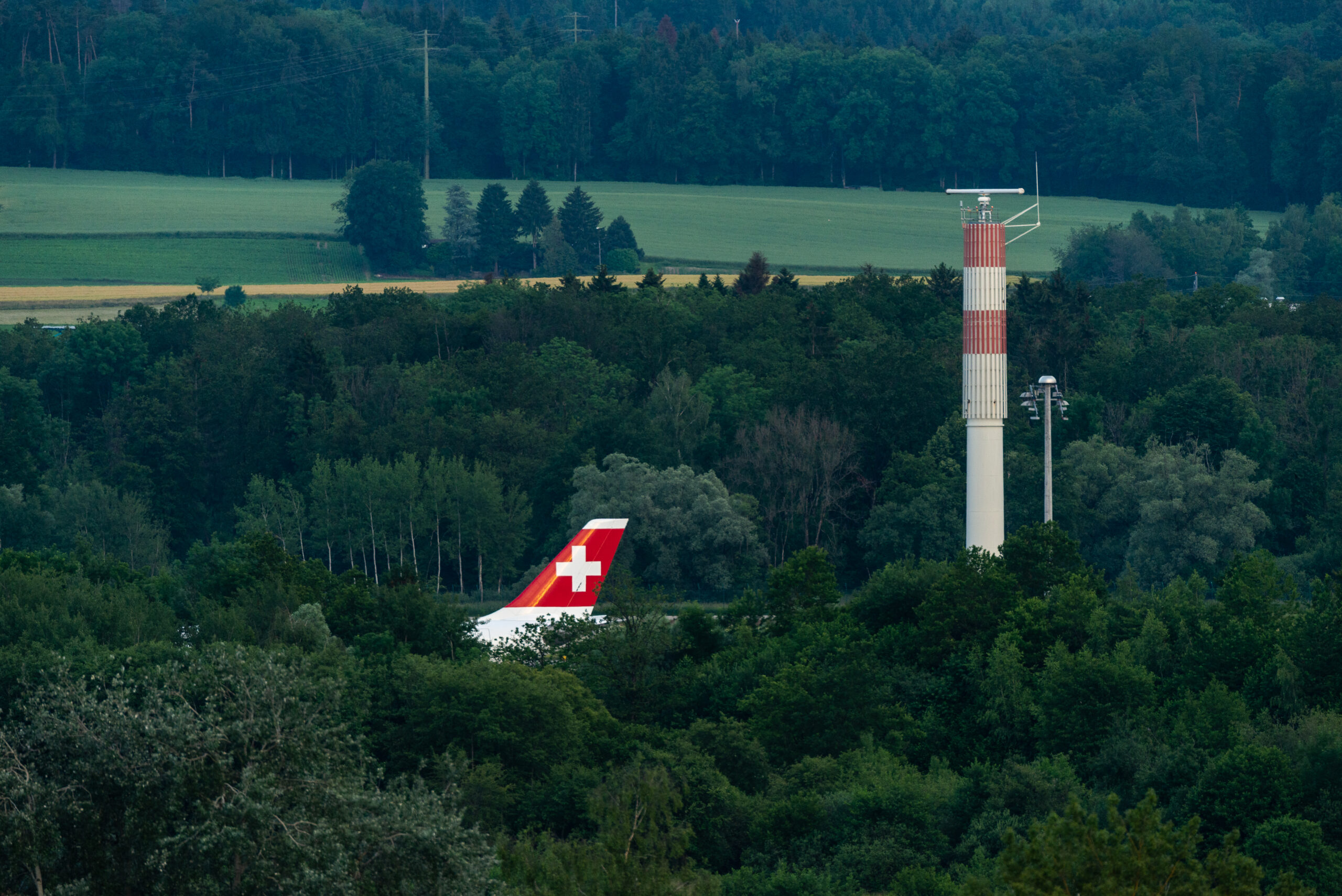Record-Breaking Turnout at IATA AGM Signals a Strong Rebound for Airline Industry
The recently concluded IATA Annual General Meeting held in Istanbul has unequivocally demonstrated the resurgence of air travel as a major player in the global business landscape
June 8, 2023
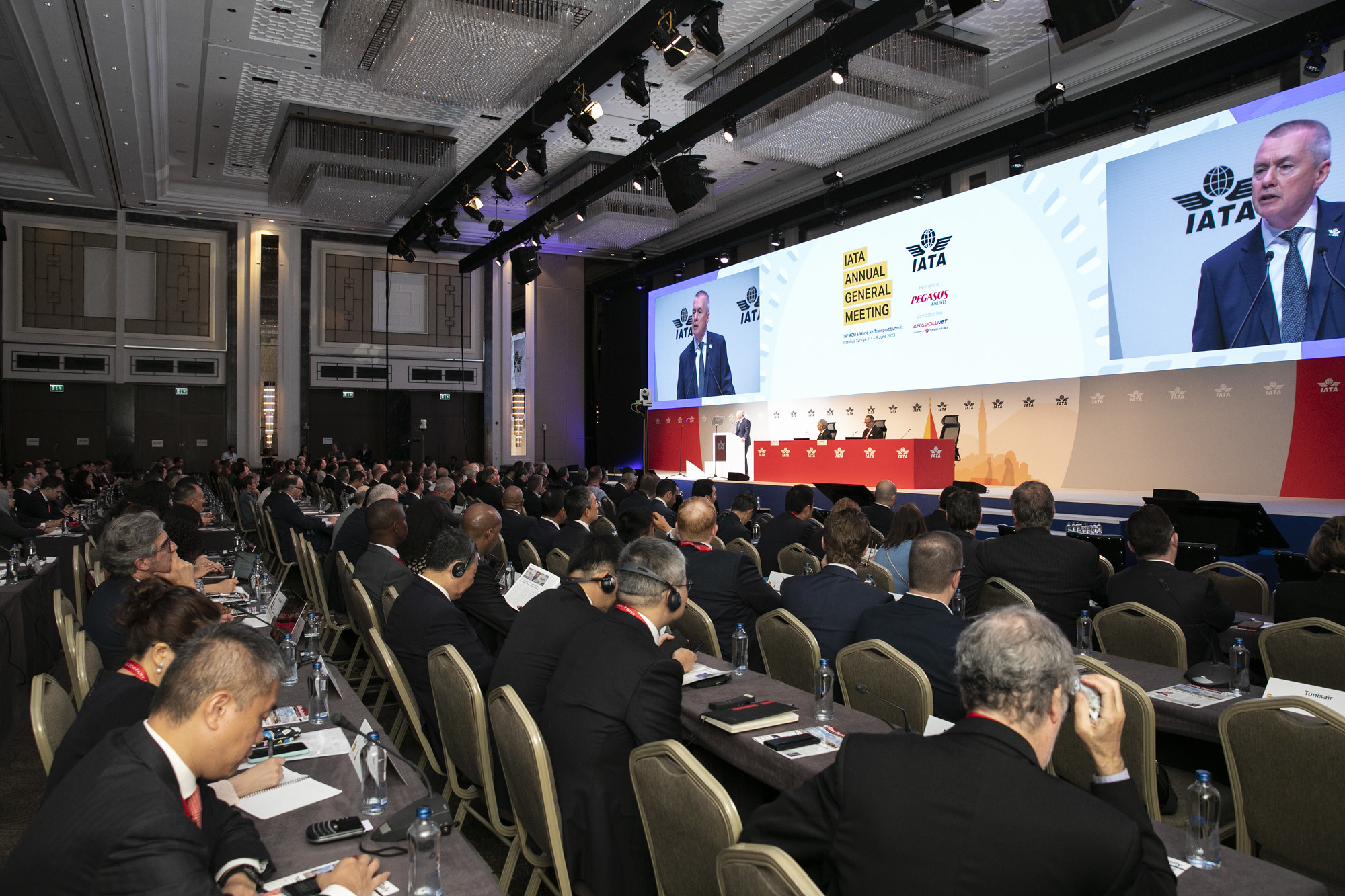
Photo: IATA AGM 2023. Courtesy of Natalia Mroz / IATA
In a remarkable display of industry enthusiasm and engagement, this week’s IATA Annual General Meeting in Istanbul surpassed all expectations, with an astonishing attendance of 1,520 delegates.
Such was the overwhelming response that registration had to be abruptly halted as the event exceeded the capacity limitations set by the venue’s insurance policy.
Reflecting on the unprecedented turnout, Director General Willie Walsh proudly declared it the most well-attended IATA AGM in history. This remarkable gathering of global scheduled airlines sets the stage for a momentous occasion, underscoring the industry’s unwavering commitment to shaping the future of aviation.
Wafer-Thin Margins
The announcement sent another clear message: The airline industry is back after the most profound crisis in its history of over one century. “Latest data show passenger traffic in 2023 at over 90% of 2019 levels”, said Walsh, “we are expecting 4.4 billion passengers this year” – while 4.5 billion flew pre-pandemic.
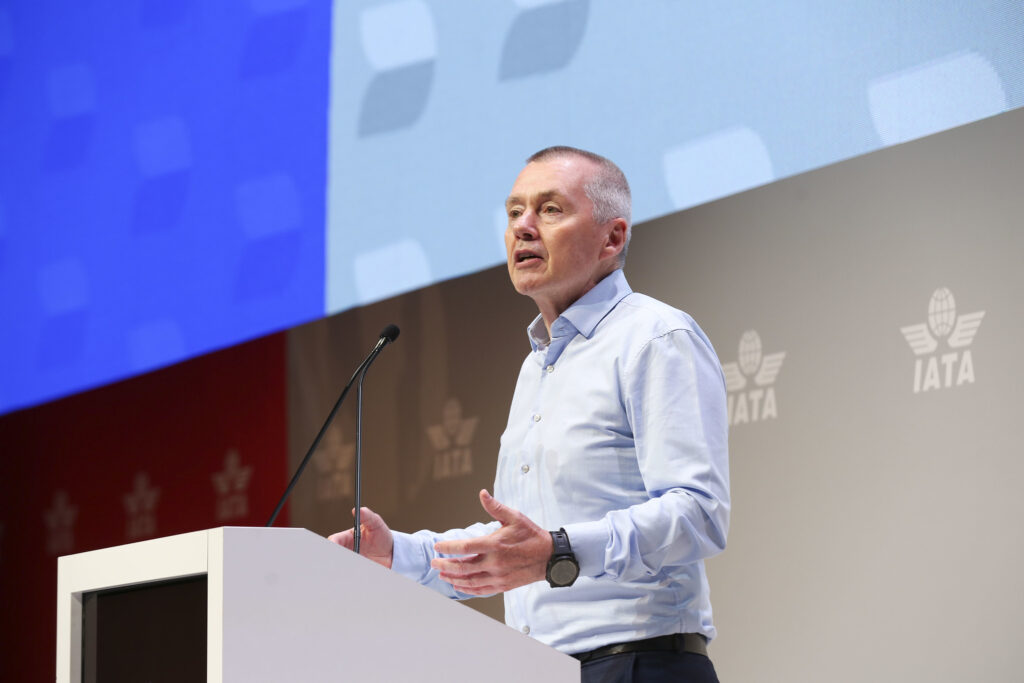
Photo: Willie Walsh, Director General, IATA at IATA AGM 2023, Istanbul, Turkey. Courtesy of
Natalia Mroz / IATA
Airlines are profitable again after facing the abyss only three years ago. “Margins are, however, wafer-thin,” stressed Walsh. “With $803 billion of revenues, airlines will share $9.8 billion in net profit this year. Put another way; airlines will make, on average, $2.25 per passenger. So, the value airlines retain for the average plane trip won’t even buy a subway ticket in NYC. Clearly, that level of profitability is not sustainable. But considering we lost $76 per passenger in 2020, the velocity of the recovery is strong.”
Climate Change Blames
One of the biggest issues the airlines face is taking the blame for their impact on climate change. IATA has committed to turning the industry to carbon neutrality by 2050, though recently, voices like that of Qatar Airways CEO Akbar Al Baker emerged, doubting this to be possible.
“I don’t think that we will be able to achieve net-zero emissions by 2050. Everybody’s talking about it, but let’s be realistic – there’s not enough production of sustainable aviation fuel,” Al Baker told the Qatar Economic Forum in late May.
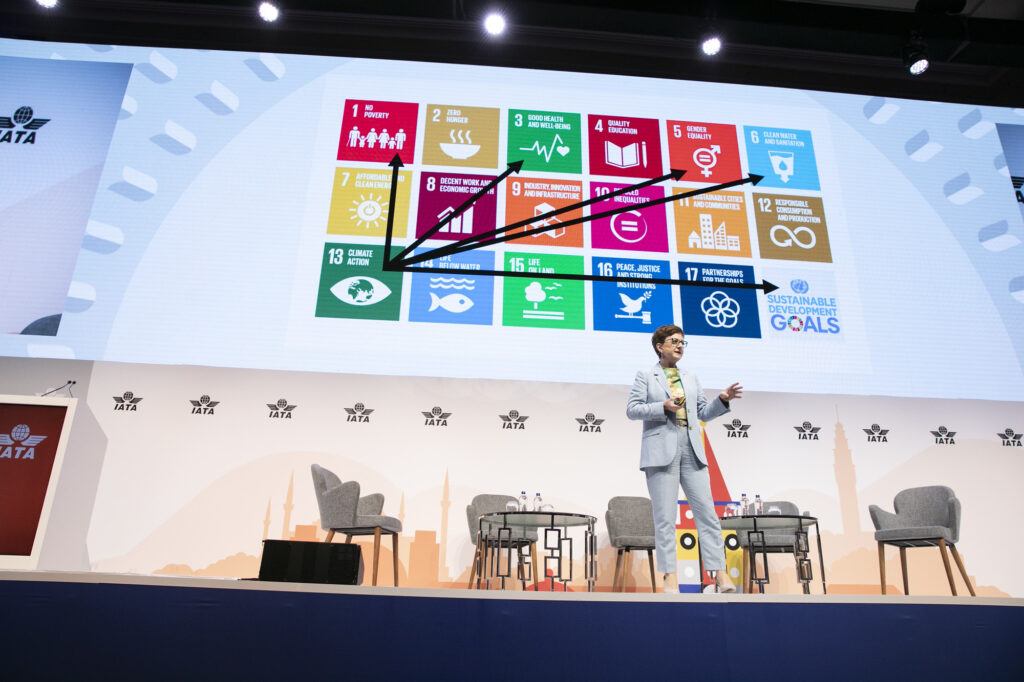
Photo: Marie Owens Thomsen, Senior VP Sustainability & Chief Economist, IATA. Courtesy of Natalia Mroz / IATA
Willie Walsh admitted that achieving the goals for 2050 “will be tough.” However, he was more upbeat about how to get there in Istanbul: “Sustainable aviation fuels (SAF) will be the biggest contributor to net zero success. Today’s SAF production is less than 0.1% of what we need for net zero. But the trend is positive,” Walsh insisted.
“In 2022, SAF production tripled to 300 million liters. With the right supportive policies, reaching 30 billion liters by 2030 is challenging but achievable. That would be about 6% of the 450 billion liters annual production capacity we need in 2050. The problem is insufficient production capacity to meet demand.”
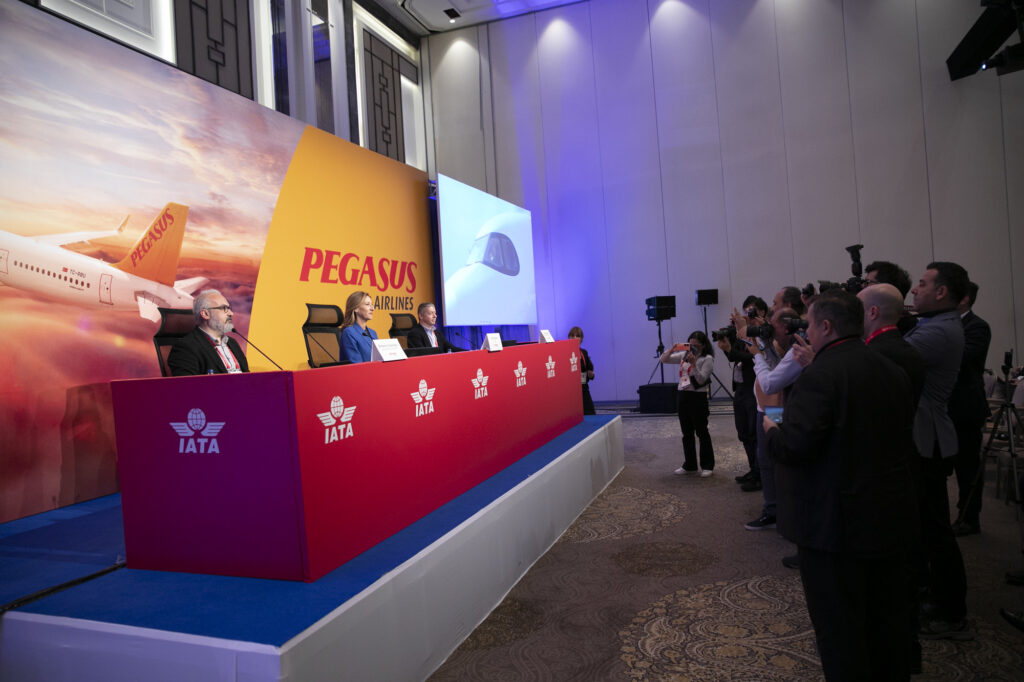
Photo: Pegasus Airlines briefing. Courtesy of Natalia Mroz / IATA
Still, some IATA representatives in Istanbul felt the airlines were getting too much heat over their climate impact. “Some industries are doing nothing, while their impact is five times higher than ours, and they do nothing, but we get all the blame, while our share of global CO2 emissions is at 2%, and we are the only industry saying it is doing something,” said Mehmet Tevfik Nane, MD of Turkish carrier Pegasus and IATA’s Chair of the Board.
The Aviation Marketplace
The biggest annual global airline gathering is traditionally a trading place of airline news from the carrier’s top management, briefing media on their latest developments. Several record-size aircraft orders are currently imminent.
Turkish Airlines was expected to announce its mega-order in Istanbul during the AGM but only informed it would now do so within the next two months.
The airline aims to operate about 830 aircraft in total within a decade, its chairman Ahmet Bolat said it is in the market for 400 Boeing 737 MAXs or Airbus A320neos, 200 Boeing 787s or Airbus A350s, plus 25-30 Boeing 777Xs or Airbus A350-1000s.
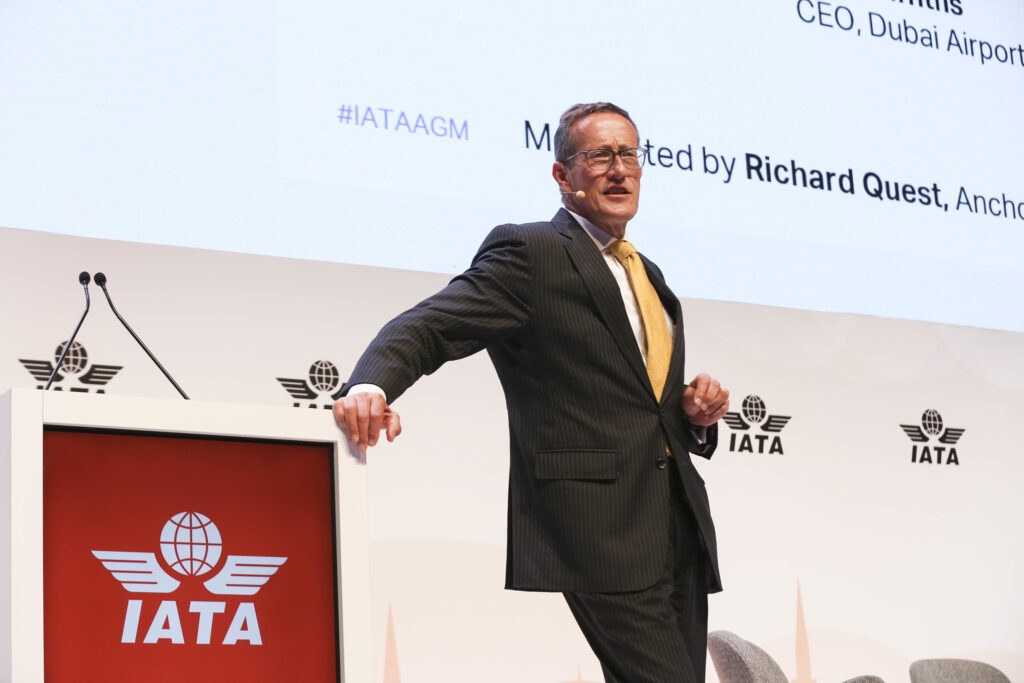
Photo: Richard Quest. Courtesy of Natalia Mroz / IATA
Another focus of the aviation industry is currently on India. “The subcontinent has only 50 widebodies so far, but is the world’s third-biggest aviation market,” said Air India CEO Campbell Wilson, who had already signed letters of intent for 470 new aircraft recently.
His counterpart Pieter Elbers of IndiGo, the most prominent Indian airline, talked about the airline’s expansion into Europe but rejected any comment on an imminent record order of reportedly over 500 new aircraft, which might come at the Paris Air Show later this month.
Lufthansa’s CEO Carsten Spohr shared the latest timeline for the Allegris cabin product deliveries on its long-haul fleet with Business Traveler. “We expect the first aircraft equipped with Allegris to be a Boeing 787 due still this summer in the third quarter,” he said. “Then the first of a batch of new A350s with Allegris will arrive from Toulouse in early 2024.”
“By 2026, coinciding with our 100th anniversary, 80% of the long-haul fleet will have the new cabins,” Spohr revealed.
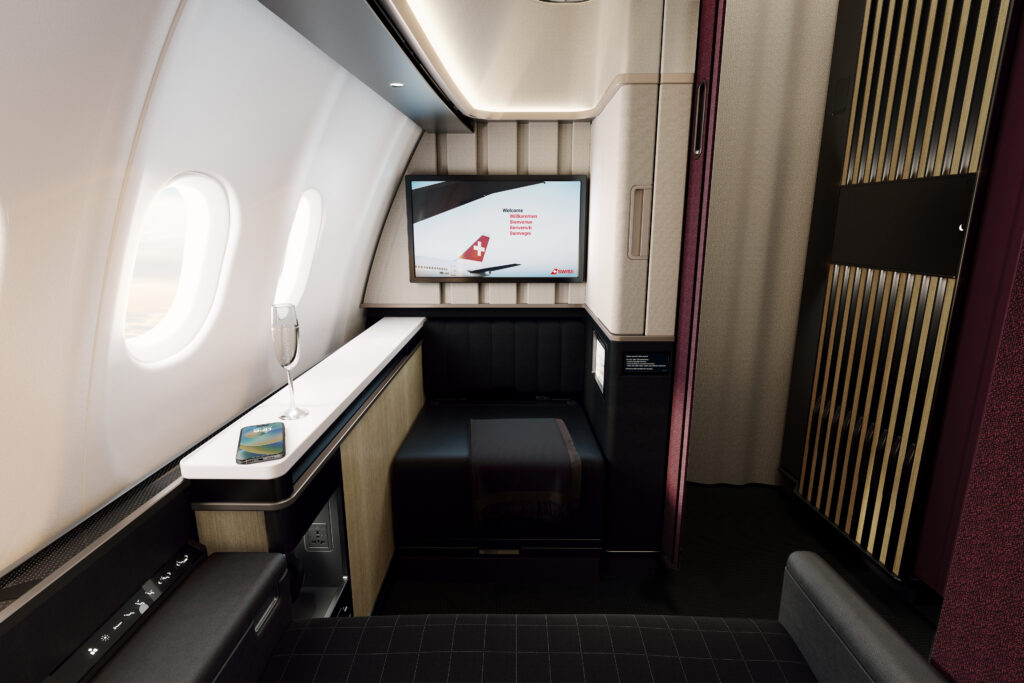
Photo: Courtesy of SWISS
Dieter Vranckx, CEO of Swiss and part of Lufthansa Group, added: “We will fly our first A350 with Allegris in 2025 and refit the entire long-haul fleet until 2027.”
Outgoing Qantas CEO Alan Joyce gave reporters an update on Project Sunrise. “The first of our new A350-1000ULRs should be delivered by the end of 2025, and it will be a game changer in customer experience. We will fly from Sydney and Melbourne to London-Heathrow, where we have four pairs of slots but currently only use two,” said Joyce.
Non-stop ultra-long-haul flights will also be offered on Sydney-New York JFK. “Seattle, Chicago, and Paris are on our wish list,” added the CEO.
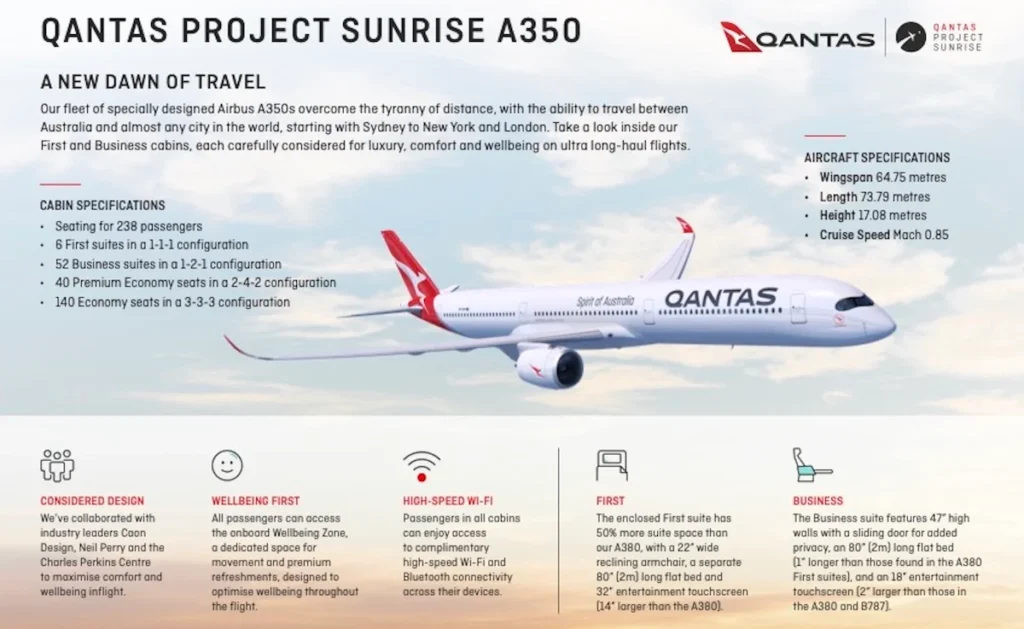
Photo: Courtesy of Qantas Airways
Asked about the premiums charged for the non-stops over one-stop fares, he said he expected them to be at least in line with current ones. “On Perth to London, we now get 20% premiums.”
Qantas also puts all their ten A380s back to work for the rest of the decade; seven have already been outfitted with the latest cabin product, started before Covid. The arrival of the eighth is imminent, while the last two still have to be retrofitted in Germany and are due to rejoin the active fleet in 2024.
Emirates currently has 95 of its 100+ A380 fleet in the air, 16 to 20 are grounded due to wing spar issues, being worked on while retrofitting the new Premium Economy class cabins, Emirates President Sir Tim Clark told reporters.
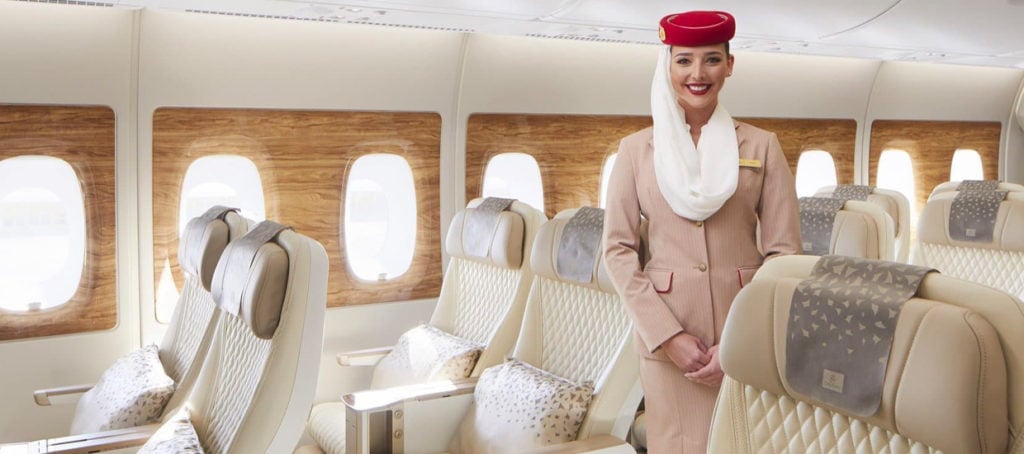
The newly refurbished Premium Economy onboard the Airbus A380 / Photo: Courtesy of Emirates
The Dubai-based carrier has to overcome considerable delays in its new aircraft deliveries. “The first of 50 A350s we ordered will now come in July/August 2024, while our 777-9s won’t arrive until the back end of 2025,” regretted Clark.
“When the new aircraft come in, we chuck out the 2-3-2 layout in Business Class,” he pledged. “I did the original cabin design for the 777-9 in 2017, but then the competition caught up, so I had to redesign it last year,” said Sir Tim, who will host the 80th IATA AGM in Dubai next June.



